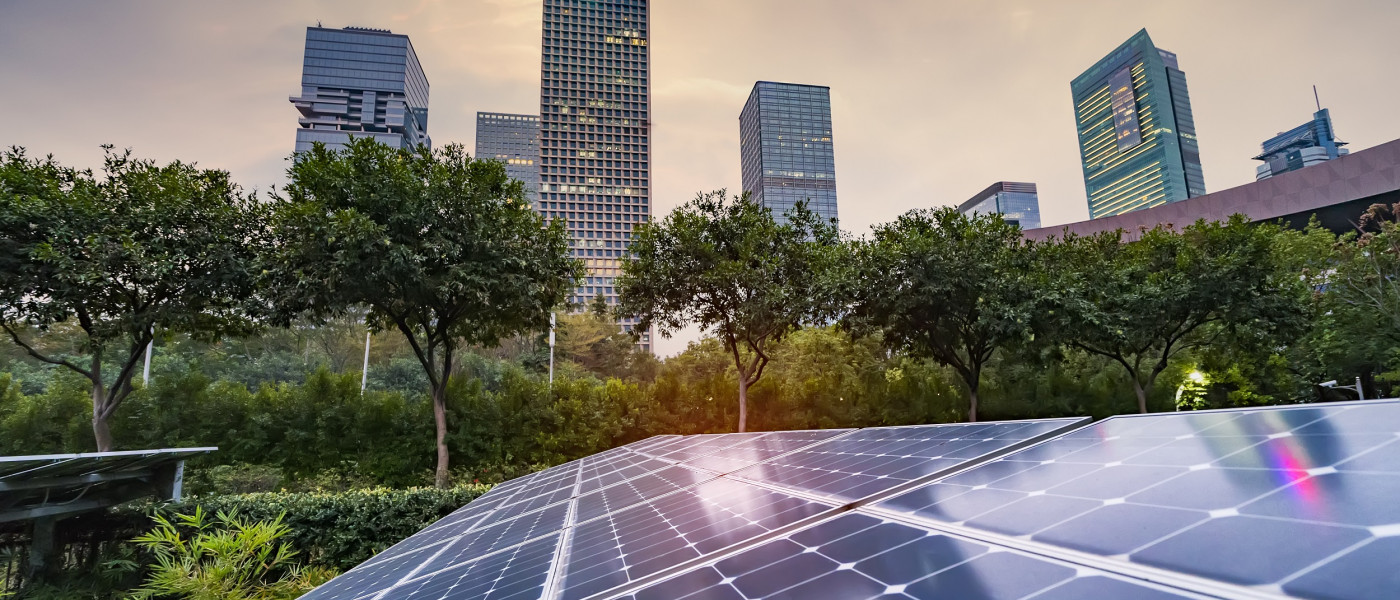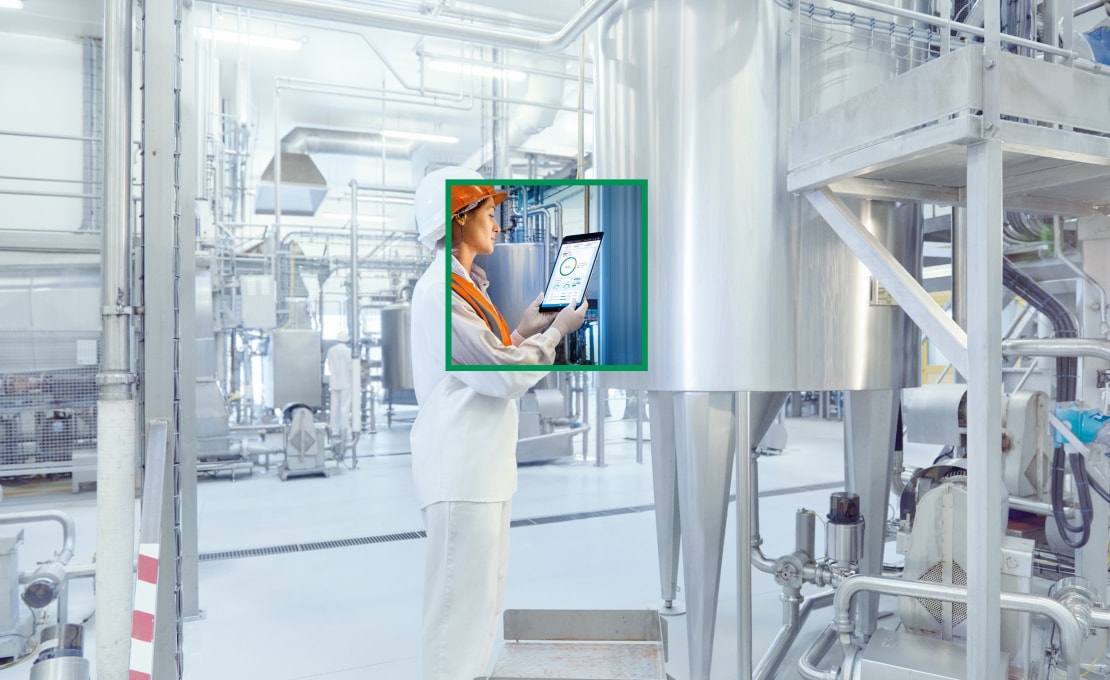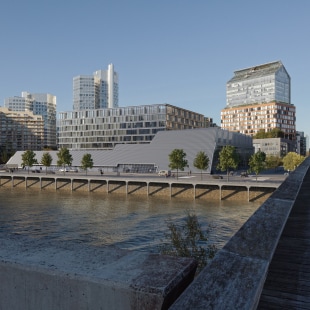Energy efficiency: growing awareness among companies
Referring to a company’s energy efficiency relates to its capacity to reduce energy consumption throughout its processes - in buildings (offices, warehouses, and industrial buildings), production facilities, transport or sales outlets, for example - to achieve savings.
The drive for energy efficiency is gaining momentum. As of the Paris Agreement to COP21, the UN’s Sustainable Development Goals, the international community has been rallying in both the public sector (governments and large organisations) and the private sector (companies and individuals), for increasingly demanding national and international CO2 emission reduction standards, a greater focus on renewable energies, building upgrades and sustainable mobility among other targeted areas of action. As such, companies can no longer ignore the need to be energy efficient, yet achieving this is a challenge that calls for assistance.
Identifying the tools that are available to companies
Regardless of a company’s economic sector or size innovative solutions exist, and more are being developed, to help both companies and their customers significantly improve their energy efficiency in a sustainable way. Assessing energy consumption is a first step in the process towards efficiency. Energy audit services now help companies identify areas where they can improve, prioritise, and determine how to apply changes. BNP Paribas provides expert advice to its customers through comprehensive assistance, from audit to production and logistics chains (such as measuring carbon footprints, for example), to calculating the savings produced by heightened energy efficiency.
To do so, BNP Paribas uses several tools:
- A partnership with La Poste and its Economies d’Energie SAS (EDE) subsidiary, in order to identify energy-optimisation solutions suited to each company;
- Access to the Change to Green platform (through the EDF partnership), which offers a comprehensive assessment including full diagnosis, analysis and renegotiation of energy contracts, and financing proposals for identified needs;
- Arval, BNP Paribas’ vehicle leasing and servicing subsidiary, offers mobility and sustainable mobility solutions including a data analysis platform for fleet managers that suggests sources of energy efficiency ranging from alternative fuel-efficient vehicles or changing driving habits.
Empowering efficient energy, to accelerate change
Thanks to artificial intelligence (AI), METRON improves the energy performance of manufacturers. Discover how BNP Paribas has supported METRON since its founding and how they work together to provide innovative solutions to the companies who need to accomplish their goal of CO2 emissions reduction. Together, we accelerate the energy transition.
Financing better energy performance
Thoroughly converting a company towards better energy performance entails an initial investment that will generate savings and increased competitiveness in the long-long. In supporting this preliminary investment, financial establishments play an essential role in the transformation of companies and the economy at large.
BNP Paribas offers innovative sustainability-linked financial solutions to companies that have committed to an energy performance approach, as well as to individual clients. We get involved in the early stages of major projects to help meet financing needs that align with energy transition in general, and in certain projects focused on energy savings in particular. This may be in the form of helping to issue sustainably-linked bonds (SLBs) or sustainability-linked loans (SSLs).
A clear example of this activity, among others, is the financing assistance led by BNP Paribas’ Corporate & Institutional Banking (CIB) division of a vast renovation project for UK energy distribution networks called the “Viking Link”..
Solutions for individuals as well
As part of our commitment to support the energy transition, we have developed several new financing tools for our individual customers. For example, 80 000 French customers received financing for their 2019 projects through “green” car loans or Domofinance energy renovation loans. In continuation of this initiative, Energibio zero-interest loans were launched in 2020. In France, outstanding loans amount to 2.1 billion euros.
Energy efficiency, a transformation within BNP Paribas
Doing our utmost to assist our customers has always been what drives us forward at BNP Paribas. As such, we are also applying the collective push towards better energy performance to ourselves. The objective to be energy efficient is by consequence reflected within our internal operating processes, namely through:
- Our commitment, in 2017, to achieving carbon neutrality in our operating perimeter, and reaching 2020 energy performance objectives ahead of schedule;
- The GC4E (Green Company for Employees) programme which sets in-house energy efficiency targets such as to reduce the use of plastic, to encourage sustainable mobility or apply green IT.
Systematically integrating optimal energy performance is also one of the priority challenges embraced by BNP Paribas Real Estate. In the European Union, as in the rest of the world, the building sector persists as the highest energy consumer and is as such therefore focus for improvement. Since 2011, 100% of our commercial real-estate development operations in France feature one or more environmental certifications with high performance indicators, and 100% of our housing development programmes include environmental or quality certification. This approach is illustrated by the Metal 57 project, at Boulogne-Billancourt, near Paris. It is the future headquarters of BNP Paribas Real Estate and a flagship of energy efficient construction.
Insight from Caroline Sainderichin, Deputy CEO for Commercal Property Development at BNP Paribas Real Estate
“Metal 57 is an ambitious real-estate project that is part of an overall strategy led by BNP Paribas Real Estate to renovate emblematic buildings. It symbolises our strong commitment to social and environmental responsibility. One the biggest challenges in this project was to certify both buildings – the renovated older one and the new one. We rated “Exceptional HEQ*” on the new building and Excellent HEQ* on the renovated one, as well as BREEAM** Excellent. We are applying for new certifications, such as BioDiverCity.”
*HEQ: High Environmental Quality
**BREEAM: Building Research Establishment Environmental Assessment Method
Building sustainable housing, to accelerate change
Metal 57 is a building that meets all the highest levels of environmental certifications of energy performance & circular economy system and addresses social issues for the surround communities. This new building is a proof of how BNP Paribas Real Estate accelerates in efficient energy especially as it will be the new headquarters of BNP Paribas Real Estate in 2022.



